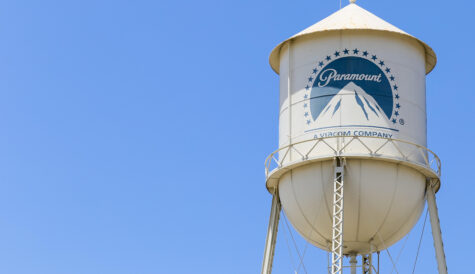
After more than 40 years of operation, DTVE is closing its doors and our website will no longer be updated daily. Thank you for all of your support.
ITV, SVOD and Kangaroo 2: look before you leap

ITV’s Love Island
UK commercial broadcaster ITV this week said that it plans to go ahead with a push in the subscription video-on-demand space, claiming that UK consumers are “willing to pay for high quality British television that they can watch on their terms – accessible anywhere, anytime and without ads.”
ITV’s indication that it is thinking more seriously about a direct-to-consumer SVOD proposition follows in the wake of discussion about the prospects of ‘Kangaroo 2’ in the UK – a reference to the abortive attempt by the BBC to lead the creation of a joint OTT platform a decade ago, which at the time fell foul of competition concerns.
Speaking at the DTG Summit in London in May, Ofcom group director and board member Steve Unger predicted that something along the lines of a ‘Kangaroo 2’ would emerge, and indicated that the regulator would be broadly supportive of such a move.
Earlier, in March, Ofcom CEO Sharon White said that “the market dynamics have changed significantly” since the original Kangaroo was proposed, and indicated that such a venture would be treated more favourably today.
Last month, BBC director of radio and education James Purnell said that the Competition Commission’s decision to nix Kangaroo in 2007 had opened the way for Netflix to dominate the SVOD market, and added that the BBC is “working hard to reverse that position”.
UK broadcasters are far from alone in playing catch-up with Netflix. In France, commercial broadcasters TF1 and M6 Group and public broadcaster France Televisions teamed up to launch a joint national OTT TV platform, Salto, while in Germany, ProSiebenSat.1 teamed up with Discovery to launch a new integrated streaming platform that will incorporate ProSiebenSat.1’s 7TV and Maxdome services, Eurosport Player and a range of other content, and which the partners plan to open up to RTL and public broadcasters ARD and ZDF if they wish to join.
In Spain, meanwhile, public broadcaster RTVE and commercial broadcasters Atresmedia and Mediaset plan to launch a joint OTT TV platform that could see them compete with the likes of Netflix, Movistar+, HBO and Sky in the market.
Big questions remain around how successful such ventures are likely to be, and what exactly is the proposition. One thing that all these initiatives share, as admitted by the BBC’s Purnell, is that they are chasing rather than leading the market: Netflix and Amazon have already gobbled up a large part of the addressable SVOD audience.
The French Salto plan has also attracted criticism, most recently from pay TV operator Canal+ France chief Franck Cadoret, who told financial daily Les Echos that he was sceptical about the prospects for the planned service as it was based on making people pay for content that had already been available free on digital-terrestrial TV. Canal+’s own SVOD service CanalPlay has suffered a calamitous collapse in its base as a result of competition from Netflix and restrictions on its ability to offer content – even its own – exclusively.
Even if a UK Kangaroo 2 was not burdened with too many regulatory restrictions, Cadoret’s point about the willingness of audiences to pay for content that has already been available free-to-air is one that must be addressed. ITV has claimed success for an early experiment in the form of the – admittedly low-cost – premium version of ITV Hub, which offers access to content free of advertising. However, for a genuinely mass market proposition, it is debatable whether a service without original exclusive content would make much headway.
Retaining rights for SVOD services also comes with an opportunity cost. The current dispute between Liberty Global-backed cable operator Virgin Media and multichannel broadcaster UKTV has centred on UKTV shareholder the BBC’s desire to retain on-demand rights to content that is available on the UKTV linear channels.
Virgin Media is basically unwilling to pay the current level of fees charged by the channel provider without also securing non-linear rights – rights to shows that the BBC can currently sell on to the likes of Netflix but which it may in the future want to retain for Kangaroo 2.
There are limits to how finely the rights pie can be sliced. Is it worth betting on an unproven VOD proposition in preference to selling your content to an existing market leader?
As an aside, the rights landscape is also becoming more complex as co-productions between broadcasters and streamers becoming more common. Free-to-air players are teaming up with the SVOD giants to co-finance high-end drama series, often with the streaming outfit retaining international rights. This may be a great way to finance series that broadcasters show free-to-air in their domestic markets, but if they adopt a subscription model for secondary windows things could get a bit messier.
Free-to-air broadcasters are of course concerned that by simply selling on their rights to the likes of Netflix they are risking a watering down of the value of their own brand in the eyes of an audience that increasingly simply will look for content from the most convenient source. For a publicly-funded broadcaster like the BBC, a continued public perception that it delivers value is also something of a matter of existential importance.
Ultimately, however, a joint SVOD platform will need to deliver material value. Broadcasters are not going to give up hard cash from the sale of rights unless the new service can capture a significant share in an already crowded market. But without going all the way and putting original exclusive content into the mix – something that would not be possible for the likes of the BBC, though it may be possible for ITV – betting on Kangaroo 2 remains very much a leap in the dark.


